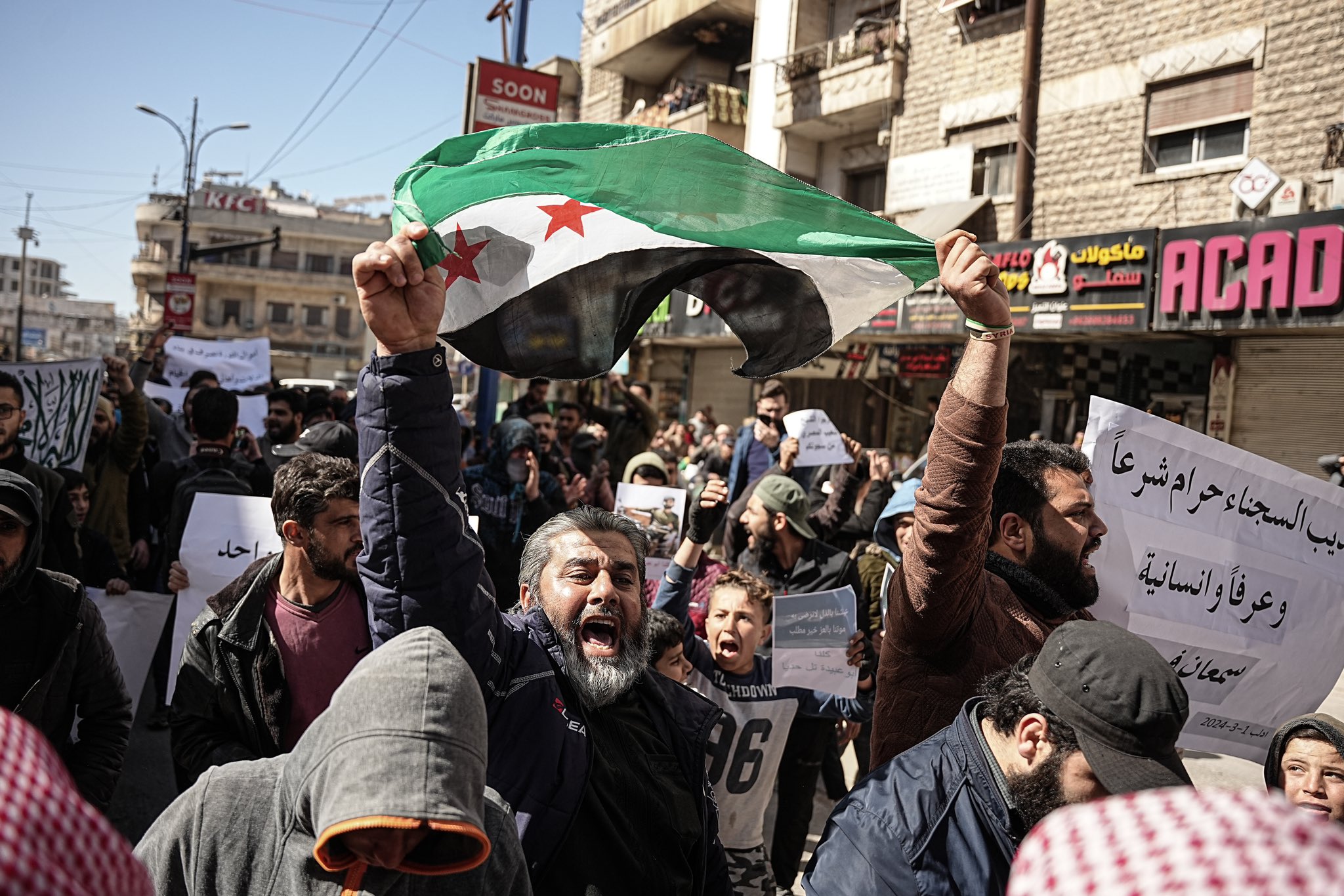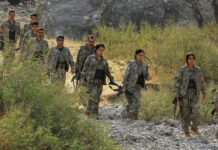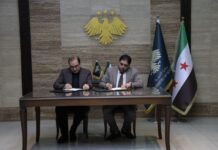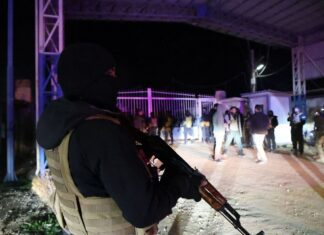
Yesterday, Friday, March 1, HTS religious leader Abdul Raheem Atoun issued a statement outlining judicial and security reforms in response to recent espionage and corruption cases and findings of the Special Investigative Committee. The announcement comes amidst growing public dissatisfaction and protests in Idlib City on the issue of prisoner treatment, torture, and security apparatus.
In the statement, Atoun highlighted seven key actions taken by HTS following the announcement of detainees’ acquittal on charges of collaboration with internal and external parties. The first step involved releasing all individuals proven innocent, followed by the arrest of investigators and those implicated in torture and mishandling of the cases by the judicial committee’s request. Atoun emphasized the formation of a judicial committee to address the rights of released individuals and hold accountable those involved in any transgressions. Additionally, extensive meetings were held with civilian and military agencies.
Furthermore, the statement said sessions were conducted within HTS and with its leader Abu Muhammad al-Jolani to review security procedures and improve conditions within the General Security Service (GSS). Atoun emphasized the importance of visiting security prisons to understand their conditions and mentioned the consideration of issuing a “general amnesty” as the Islamic fasting month of Ramadan approached. He pledged to establish efficient communication channels to receive feedback and assured the public of forthcoming reforms and procedures, although specifics were not disclosed.
The release of the statement coincided with scheduled protests after Friday prayers held in Idlib City, where protesters criticized the treatment of prisoners and called for an end to torture and solitary confinement in prisons.
Abu Malik Al-Shami, a former member and leader of HTS, also issued a statement on social media echoing concerns about HTS’s governance. Al-Shami warned against oppression and urged HTS leadership to resign alongside “unwanted individuals” to restore trust among the populace.
However, some are cautious and concerned that the call for reform could be exploited. This includes Motaz Nasser, a Syrian blogger and political activist, who offers his own insights into the underlying causes, advocates driving the movement, and the myriad challenges faced in ensuring the fulfillment of reasonable demands.
He identified various groups advocating for popular demonstrations and movements and said that while conscious revolutionary activists driven by national sentiment form a significant segment of demonstrators, there is a vocal minority, motivated by partisan reasons and hostility towards HTS who are participating. Factional competitors and former members of HTS, seeking redemption for past mistakes or opportunities for revenge and improving their reputation add complexity to the landscape.
Nasser acknowledges that numerous challenges impede the progress of the popular movement. The regime and its allies exploit unrest to destabilize the region militarily. Additionally, efforts to create clashes between demonstrators and authorities threaten public peace. The diversity of perspectives within the movement risks hindering the formation of a cohesive representative body. While polarization may lead to clashes, compounded by the authority’s disregard for demands exacerbates tensions. Moreover, says Nasser, external interference threatens the region’s autonomy.
Nasser cautions against an “all or nothing” mentality and instead proposes focusing on non-zero-sum demands with broad consensus among demonstrators. He emphasized that immediate reform steps within HTS, including addressing judiciary issues and ensuring the release of forcibly disappeared individuals, are crucial. Economic and service improvements, and enhanced popular participation through elections and formation of demand groupings are suggested. Moreover, developing media diversity and establishing red lines to preserve civil peace is imperative.
The recent protests indicate the challenges and the multifaceted dynamics driving the recent demonstrations facing HTS as it navigates internal reforms and external pressures. HTS’s response to these recent developments and criticisms will likely shape its public credibility and influence in the region. With those like Nasser, the path forward necessitates a concerted effort to address grievances, promote inclusivity, and safeguard civil peace.








